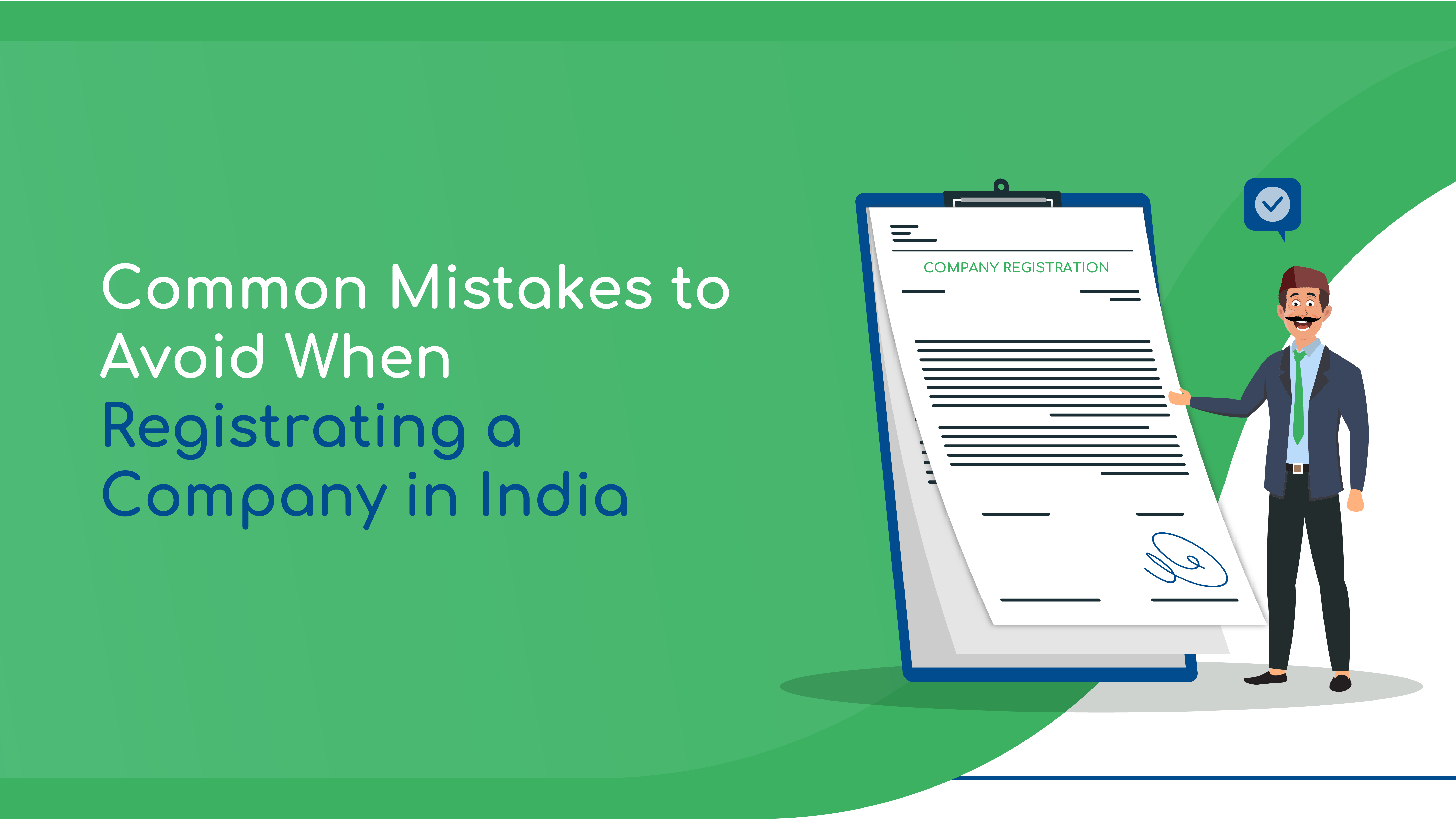Common Mistakes to Avoid During Company Registration in India

Starting a company in India is an exciting milestone, but the process of registration under the Ministry of Corporate Affairs (MCA), along with related legal, tax and compliance formalities, involves several intricate steps. Overlooking even a small detail can lead to delays, additional costs, or regulatory complications. At One-Startup, we ensure that entrepreneurs make it right from day one.
Below is a checklist of company registration India mistakes to prevent while registering companies in India, and how to have an effortless incorporation process.
-
Selecting an Inappropriate Business Structure
In terms of structure, selecting the right business structure is one of the most consequential decisions made early on Private Limited Company, One Person Company – OPC, Limited Liability Partnership – LLP, or Partnership Firm.
Choosing the wrong structure will impose undesirable consequences around tax implications, compliance obligations and ownership flexibility, as well as your ability to generate funds and potential exit strategy.
Recommendation: Prior to applying for registration, consider your long-term goals, number of founders, annual investment plans, level of compliance comfort and potential for scalability.
Use professional help if necessary.
You shouldn’t select the “easiest” option; select the one that most appropriately aligns with your vision.
-
Failing To Properly Check Name and Trademarks
Your company name is not just a name; it serves as your brand identity and legal standing. If the name you are looking to register is too close to a name registered by another company or a registered trademark, the MCA may reject the application and you will have to wait in line for another application, adding to the time required.
Recommendation: Always conduct a detailed name availability check using the MCA portal and verify existing trademarks on the IPO website. You can also use our website https://one-startup.in/ for a quicker and more convenient search.
Be sure that the name you are proposing is unique, professional, and follows the naming guidelines laid out by the MCA. For a detailed understanding, you can refer to our (Blog ref) for step-by-step guidance.
-
Submitting Incomplete or Incorrect Documentation
Submitting incorrect or incomplete documentation is one of the most common reasons for delays in registration. Mistakes can include wrong addresses, incomplete Know Your Customer (KYC) information, or discrepancies in the names of directors.
Recommendation: Before submission, prepare a full list of documents required: PAN and Aadhaar of directors, proof of registered office, utility bill, NOC if necessary and Digital Signature Certificates (DSC).
Ensure that the information provided is consistent across all the documents.
Take a moment to review all details to avoid rejection.
-
Using a Non-existent Registered Office Address
The registered office is a company's address for general communication by the company, and verifying a temporary/virtual address with no underlying documentation and NOC will likely halt the registration process.
Recommendation: Take the time to ensure that your registered office address is bona fide; there is a valid utility bill or a lease agreement acknowledging the validity of the business address and that the address can easily be verified.
Requirements are subject to local jurisdiction, ensure to confirm them before submission.
-
Post-Registration Licenses and Tax Registrations Ignored
Most entrepreneurs believe that on the receipt of the Certificate of Incorporation, the process is over. However, based on your business nature, you will still have to get other registrations like GST, Shop and Establishment License, Import-Export Code (IEC), etc.
Recommendation: Plan a roadmap for everything post-incorporation. If you will be operating in multiple states, think about GST registration.
For the employment of employees, adhere to labour laws.
For export/import activities, obtain an IEC.
-
Ignoring Shareholder and Founder Agreements
While external compliances are taken care of through incorporation, internal governance is not addressed. Without well-established roles, equity terms, or decision-making rights, disagreements among co-founders may creep up later.
Recommendation: Prepare a plain Founders' or Shareholders' Agreement upon registration.
Specify equity participation, roles and responsibilities, voting rights, dispute resolution mechanisms and exit provisions to avoid future misunderstandings.
-
Overlooking Post-Registration Compliance
Too many startups concentrate on getting registered but ignore the post-registration compliance calendar. All registered companies have to file annual returns, hold board meetings, keep statutory registers, and meet income tax and GST filings (if any).
Failing to do so can result in penalties, directors' disqualification, or even MCA strike-off of the company.
Recommendation: Create a compliance calendar immediately after incorporation. Utilize electronic reminders, or even better, engage a compliance specialist who will take care of filings and documentation in time.
-
Attempting to Manage Everything on Your Own
While you might want to save costs and handle registration on your own, navigating India's corporate compliance environment can be quite tricky. Even a minor mistake in a form filing or document preparation can result in your application being rejected or delayed.
Recommendation: You will always be better off speaking to professionals such as a chartered accountant or a company secretary. An experienced and trusted service provider such as One-Startup can help guide you through the process, ensuring the process is as efficient and accurate as possible, as well as providing your company with continued assistance long after incorporation.
Conclusion
Registering a company in India is possible without complications but does require diligence, time and professional input. While the previously discussed common company registration India mistakes may seem insignificant, they can all lead to delays, costs and complications if not handled correctly.
At One-Startup, we are passionate about simplifying your entrepreneurship journey, dealing with all the registration formalities, compliance activities and obligations, ensuring that you can focus on scaling your business.
Whether you are a first-time founder, an early-stage startup, or a growing business, our experts can assure you that your registration will commence smoothly and compliantly
Get started today with One-Startup as the differentiated step for your journey to running a successful business.